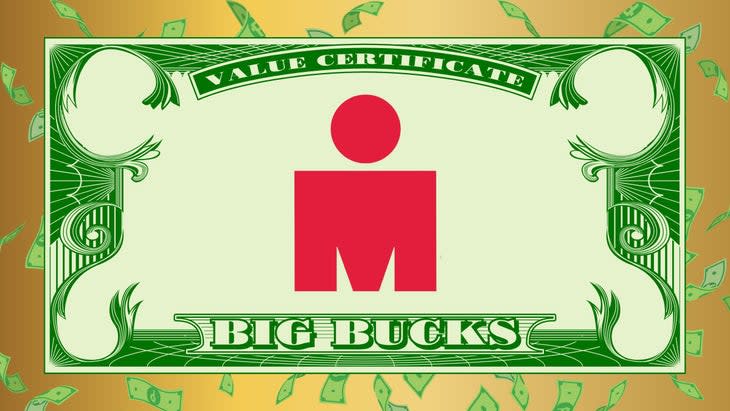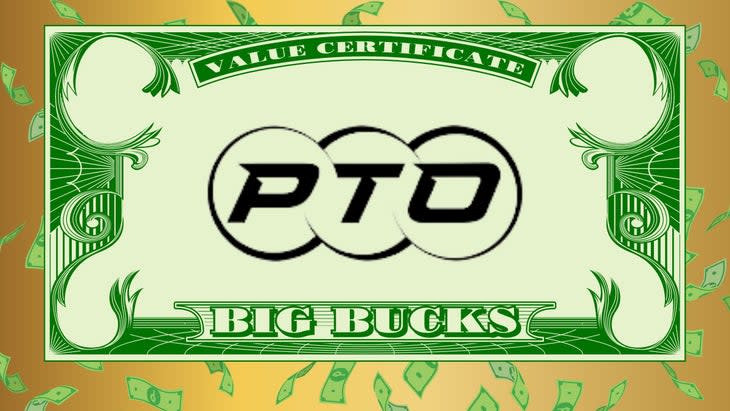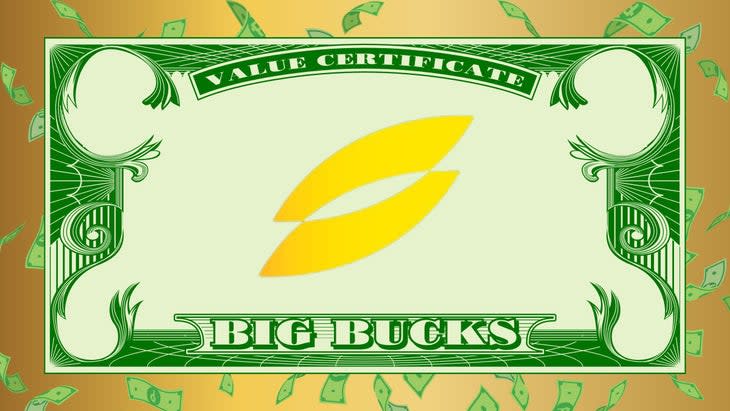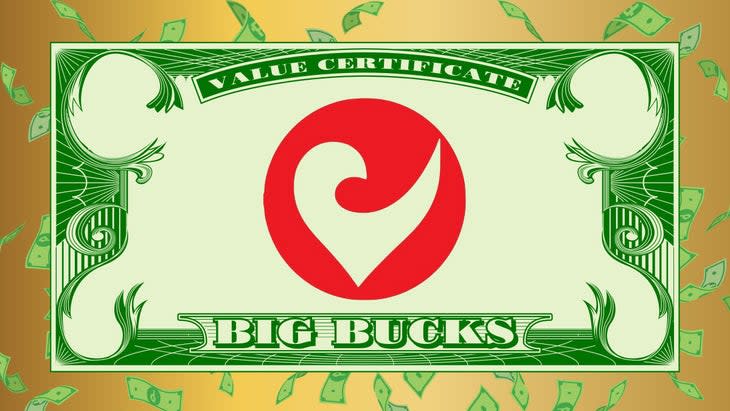Who Owns Ironman? Who Owns Triathlon?
This article originally appeared on Triathlete
When we think triathlon, we might think Ironman, Hawaii, the Olympics, or the local event organizer down the road who puts on a fun competition every third Sunday in August. All of those are, in fact, triathlon. But triathlon is also a business, with money changing hands on a daily basis and an ever-evolving answer to the question: Who owns triathlon?
It’s easy to think that some brands are mega-monsters eating up everything in sight, while others are scrappy upstarts simply bootstrapping themselves into existence. In many instances a perceived battle of David versus Goliath is actually Goliath versus Goliath II. The reality is that answering, who owns triathlon is tricky. To help, we’ve put together the most recent ownership information that’s available at the time of this writing just below. Not a business whiz? We’ve also created a glossary of terms far below to help you translate.
Who owns Ironman?

To start: Ironman is not owned by a Chinese conglomerate. At least, not anymore. Ironman has come a long way since Valerie Silk took charge in 1981 and moved the race to Hawaii's Big Island, but its ownership in recent years has been a bit of a hot potato.
Today, the brand is run by The Ironman Group, formerly the World Triathlon Corporation, a sports event promotion company that is owned by Advance Publications.
Advance acquired the brand from China-based Wanda Sports Group in August 2020, with private equity firm Orkila Capital as co-investors. Orkila's founders Jesse Du Bey and Taylor Storms also helped execute the 2008 purchase of Ironman on behalf of their prior firm, Providence Equity. With us so far?
Advance was reported to pay $730 million to Wanda, $80 million more than the Chinese conglomerate forked out in 2015 for its original purchase. It's nowhere close to the return the Wanda would have wanted, but perhaps this is due to the pandemic's impact on the events industry. The sale also hints at one of the ongoing issues in controlling the global triathlon landscape – how do you scale and expand into new territories? The triathlon boom in Asia, despite all the optimism from Wanda-days Ironman, just didn't happen.
That's the recent backstory, but what do we know of Ironman's current owners Advance? First, it's a giant media company. Like all the notable triathlon stakeholders in 2023, Advance is privately owned – in this case by billionaire businessman Donald Newhouse, son of the late founder Samuel Irving Newhouse, Sr. Now in his 90s, Bloomberg estimates Newhouse's personal wealth to be approaching $20 billion. Recruitment company Zippia puts Advance's annual revenue at around $2.4 billion.
It's also worth noting in a triathlon context that as well as owning Ironman, Advance holds an 8.2% stake in another media company, Warner Bros. Discovery. Not enough to exert control, but more than a passing interest.
Who owns the Professional Triathletes Organization?

If Ironman is our recognizable behemoth here, then it's the Professional Triathletes Organization that has been rattling the financial sabers of late.
The PTO was initially formed in 2015 after earlier attempts to create triathlete unions fizzled out. But it wasn't until January 2020, when Welsh journalist-turned-Silicon Valley investor Michael Moritz put in some serious dollars through his investment company, Crankstart, that it really took off.
While official amounts were withheld, the initial launch came with the announcement of $2 million in prize money for a new event, the Collins Cup. As the pandemic put racing on hold, PTO also announced an early $2.5 million payout of its end-of-year rankings. It may not have dented Moritz's billions, but neither was it chump change in triathlon terms.
In December, another round of major funding – reportedly $30 million – saw investment by Luxembourg-based private equity fund Divergent Investments, more from Moritz, plus Warner Bros. Discovery pitching in too. (Yes, the same Warner Bros. connected to Ironman through Advance, the irony not lost given how the PTO and Ironman have a propensity to lock horns). The involvement of Warner Bros. didn't come as a huge shock, as it had already signed a multi-year broadcast partnership with the PTO in July.
Unlike Ironman's participation model, the PTO looks to drive up the value of the professionals competing in the non-drafting side of the sport. It makes its money from sponsorship, broadcasting, and hosting rights for flagship events such as the aforementioned Collins Cup, and PTO Opens, which for 2023 have been announced for USA and Asia. At least one more, in Europe, is expected to follow.
Also unlike Ironman, the pro triathletes do have financial skin in the game with the PTO. "Athletes are co-owners of the business, participating on an equal footing in success," Moritz says, "a recipe that is a mainstay of the Silicon Valley investment model."
In practice, this means the athlete body will benefit from an equal share of profits – if the business ever turns a profit. It's not yet clear how this return will be fed back to the athletes. It could be through pensions, insurance, or just more prize money, for example. It's worth reiterating that one of the PTO's biggest overheads is already prize money, so it looks a very good deal for the athletes.
Who is at the helm of the PTO? The chief executive is Sam Renouf, a former pro and London Business School graduate, who previously worked at Active – the company that processes your Ironman registration fees...for a fee. Then there's executive chairman Chris Kermode, the former president of the ATP, the men's professional tennis tour. Alongside the commercial board, there is also a seven-strong PTO athlete board whose president is veteran Ironman champion Tim O'Donnell.
RELATED: The Richest Pro Triathletes of 2022
Who owns Super League Triathlon?

Another new kid on the block who arrived at a similar time to PTO is Super League Triathlon. From its first event in the luxury of Hamilton Island off Australia's east coast, it has delivered something of a “wow factor” for its style, speed, and polished broadcasting.
Similar to the PTO, Super League tries to put the athletes (this time short-course stars) front and center and earn its revenues from broadcast and sponsorship. More recently, it also started purchasing events – with New York and Chicago triathlons being snapped up alongside last year’s Malibu tri purchase. As with the PTO, which has started to put on age-group events around the pro showcase, Super League is dabbling in the world of mass participation.
The triumvirate of founders behind Super League are successful businessman and chief executive Michael d'Hulst, two-time Kona winner Chris McCormack, and Russian-born Canadian entrepreneur Leonid Boguslavsky, a mathematician and software engineer who went on to start investment firm RTP Global. As a private company, Super League won't release figures as to how much has been invested, but it's fair to assume Boguslavsky holds a hefty stake: His current net worth, according to Forbes, is $3.8 billion.
RELATED: Can Triathlon Ever Be a Spectator Sport?
Other players in the mix: Challenge, Clash, and Xterra

Hailing from Germany, but now based in the Netherlands, Challenge Family have been number two to Ironman in the long-course participation space for years. They also hold one of the most popular iron-distance triathlons in the world with Challenge Roth. But despite a crack at the North American market in 2013, Challenge has rarely threatened to usurp Ironman.
While Felix Walchshoefer was the familiar face of the brand for years, times have changed. The Walchshoefer family have been synonymous with Challenge Roth for almost 40 years, and Felix's father, Herbert, was pivotal in Roth breaking away from Ironman in the early 2000s. But while the Walchshoefers retain the helm at Roth, the rest of Challenge's races are now run separately under former theater science student Jort Vlam, its flagship event being the Challenge Championship in Slovakia.
While Ironman has differing relationships with local organizing committees for its races around the world, it's notable that Challenge runs more of a franchise model. It removes the immediate financial risk from Challenge, but if races prove successful it also leaves them open to Ironman stepping in and purchasing the event from the local owners once the contract expires.
There was further fragmentation of Challenge in 2021, when Challenge North America broke away to become Clash Endurance under the stewardship of chief executive Bill Christy. Clash Endurance has focused on using speedways in Daytona, Miami, and Atlanta to provide a "festival atmosphere" experience and also try and pull a broadcast audience, using existing infrastructure set up for NASCAR.
Off the beaten track we also have XTERRA, the off-road series whose world championship moved from its longstanding home in Maui to Trentino in Italy last year. Xterra Sports Unlimited is based out of Portland, Oregon, and runs events in Asia, Europe and, the Americas.
It's not just the big brands...
The organizers above might grab the limelight, but there are thousands more events, many of them shorter in distance and sometimes cheaper in price, that also make up triathlon's rich tapestry.
These vary from being not-for-profit races, often hosted by a local club or enthusiast, to for-profit enterprises put on by local or regional organizers who try to turn a buck. Sometimes these become mini-series, big enough to attract a buyout. One example: the UK’s successful Outlaw Triathlon events, which started as a college project by founder Iain Hamilton before being sold to global sports and entertainment agency CSM.
But herein lies the risk. One huge advantage to successful local races is buy-in from their communities. This means not just permission to inconvenience local folk with road closures on race-day, but a willingness for volunteers to turn out in numbers. Without volunteers, no organizer could make an event work financially, including Ironman (as we saw in Kona last year, when locals outright rejected the growth of the event and forced Ironman to split its world championship race to two locations). It's a fragile ecosystem. Lose the goodwill, and you quickly lose the race. When considering who owns the sport, it’s important to know that while brands might attract attention, the good news is that the people still have the power.
What about the governing bodies?
We've yet to mention the role of World Triathlon, formally the International Triathlon Union, and the sport's global governing body. Its rules tend to be adopted by the various brands within the sport (most recently, rules on supershoes) and works hand-in-glove with national governing bodies, such as USA Triathlon.
Triathlon is a fine example of why it's beneficial to be part of the Olympic movement. Having been accepted by the International Olympic Committee (IOC) in 1994 and included in Sydney 2000, it is now a Category D event (categories run A to F), which means it shouldn't be booted out any time soon.
The IOC pays sports on their profile, chiefly how many eyeballs follow their progress at the Games, and for this World Triathlon receives its biggest check. It also brings in sponsorship and sells broadcasting rights, particularly for its top-level World Triathlon Championship Series. World Triathlon president Marisol Casado is, handily, an IOC member and the organization’s latest audited accounts (2020) show revenues of $1.98 million from the IOC, sponsorships of $666,o00 and television, and event fees of $142,000. It's worth noting that these numbers are from peak pandemic and pre-Tokyo: In previous years, the sums from the IOC were $3.6 million (2019), $3.8 million (2018) and $3.4 million (2017).
This cash is used in all manner of ways, including encouraging participation in developing areas of the world, and feeding the money down to the regional organizations such as the Americas and Europe.
Who else has a financial stake in triathlon?

As you can see, there’s a lot of overlap when it comes to investing in triathlon event companies. This is also true for non-event companies.
Zwift, for example, with its estimated 4 million regular users, could argue it has more sway over how we exercise than all the organizers put together. Founded in California in 2014, co-founder, CEO, and chairman Eric Min has helped drive its success. It can now count Super League's money man Boguslavsky among its investors, and has teamed up with the race series for the novel Arena Games concept – an indoor series with a pool, turbos, and treadmills.
This overlap also applies to triathlon publications. In 2017, the Competitor Group--which included this title, the now-defunct Competitor Magazine, the Rock N’ Roll Marathons, and more--was purchased by the Ironman. Only a few years later, Triathlete, Women’s Running, and others were resold to Pocket Outdoor Media. In 2021, Pocket Outdoor Media, the owner of Triathlete, changed its name to Outside after acquiring multiple companies in the outdoor industry, including Outside magazine. The acquisition was made possible by Series B financing from investment partners that include Sequoia Heritage, who among the new board of directors also include Michael Moritz. [Ed note: During the current editorial leadership, Triathlete’s editorial coverage has never been directly influenced by any changes of ownership nor the composition of its board of directors. All editorial decision-making begins and ends entirely within the editorial division. – Chris Foster, Editor-In-Chief]
And, of course, there’s the most important stakeholder in triathlon: You. there's one person we've slightly left out of the conversation – you. After all, it doesn't matter who owns what organization, what distances are raced, or how much is plowed into eye-catching marketing if nobody enters. At the end of it all, you, the triathlete, have the ultimate power. When you spend your money, you make your choice.
RELATED: From An RD: Only You Can Save Your Local Tri
Glossary: What does it mean to “own” triathlon?
If you’re not the type to spend hours following mergers and acquisitions or refreshing stock market tickers, you’re not alone. With that in mind, a glossary of helpful terms:
For exclusive access to all of our fitness, gear, adventure, and travel stories, plus discounts on trips, events, and gear, sign up for Outside+ today.

